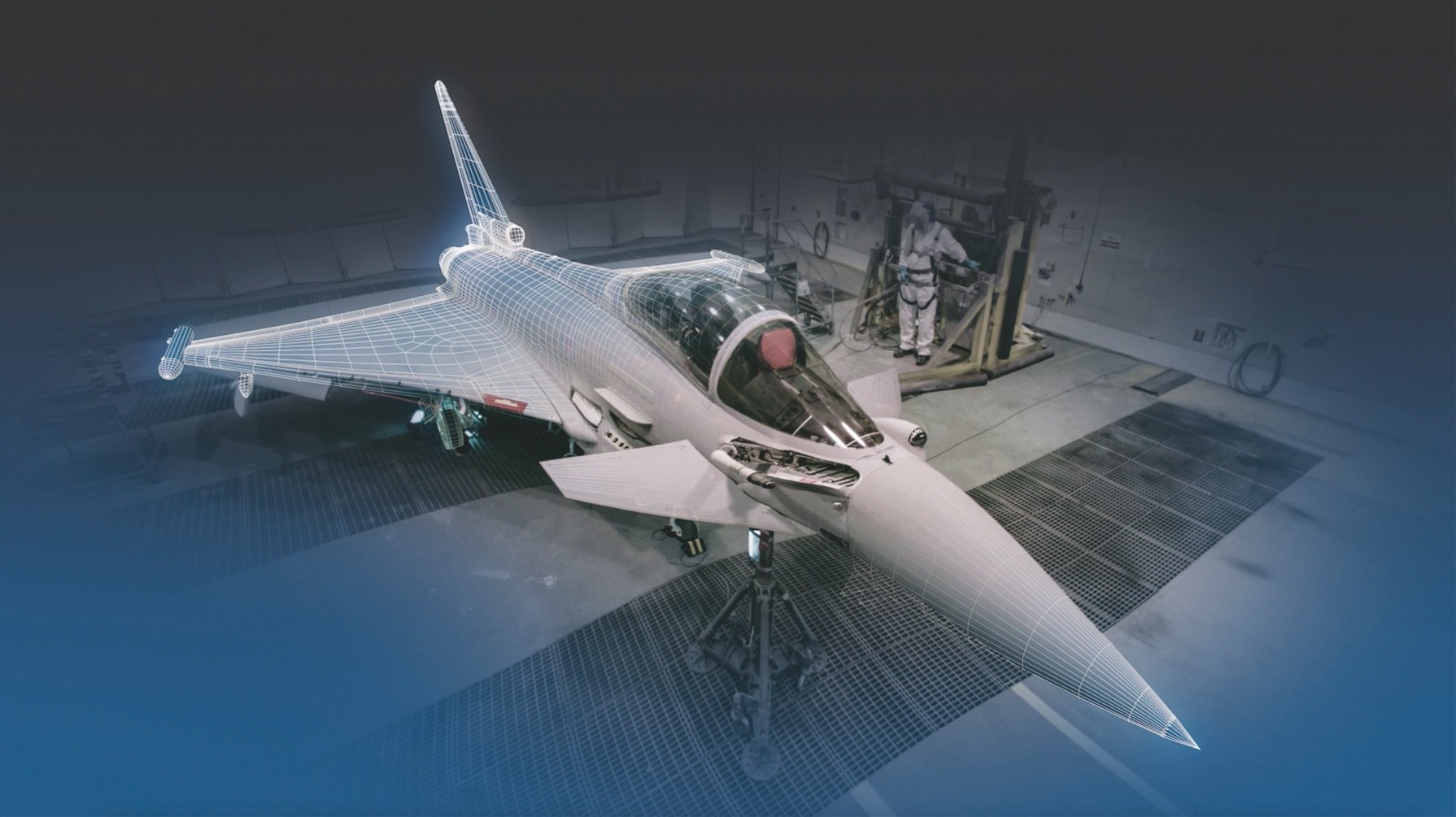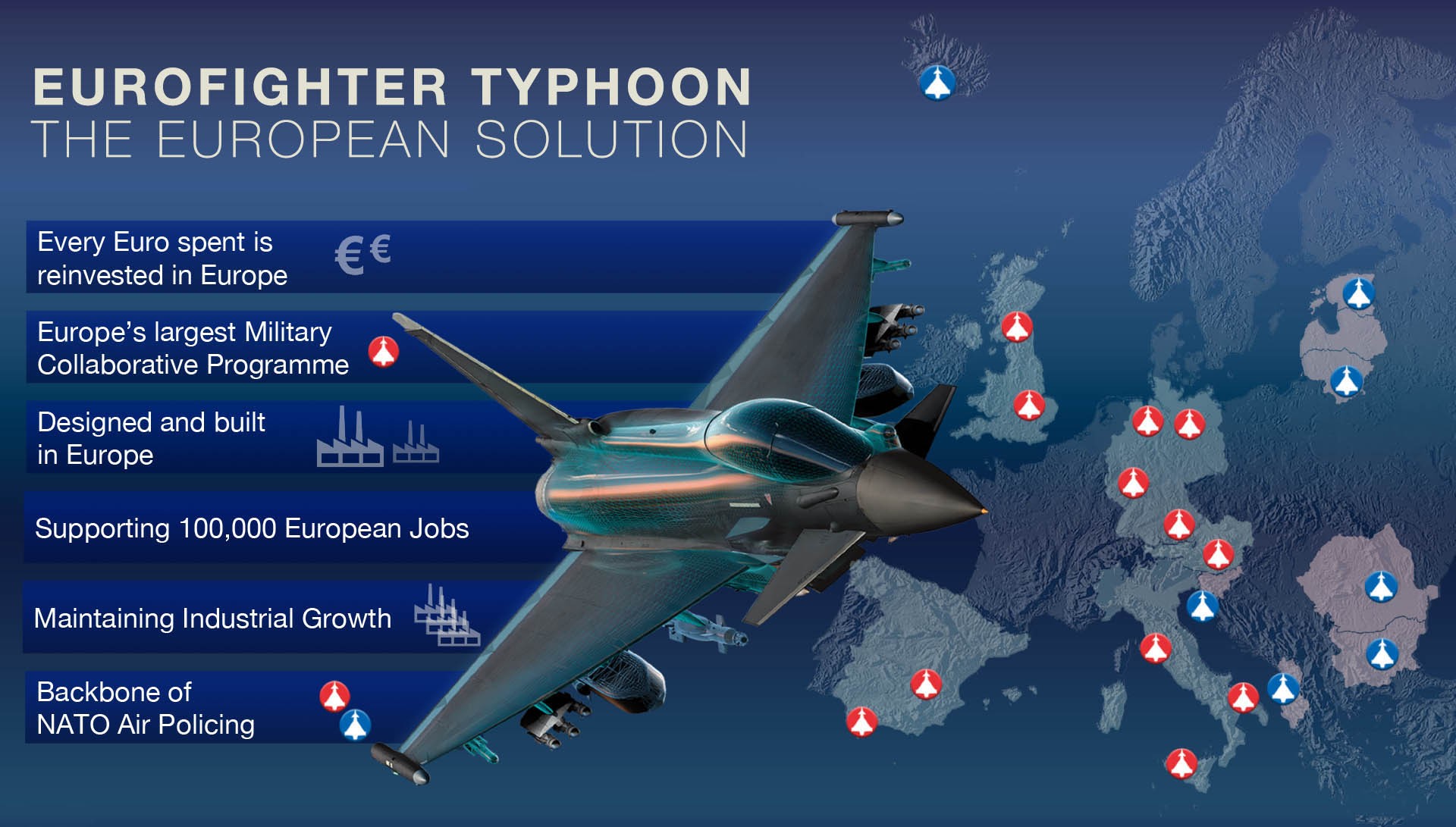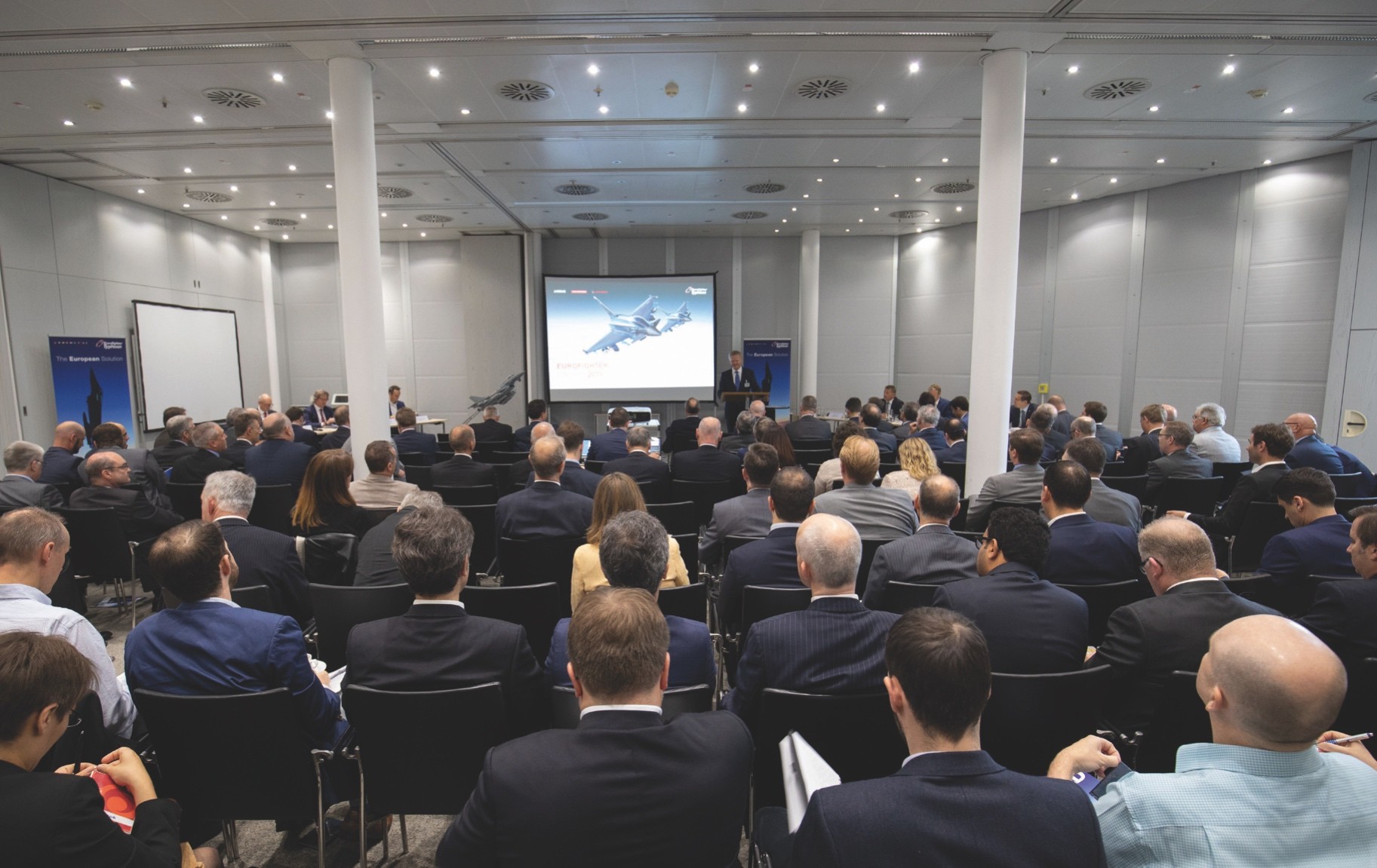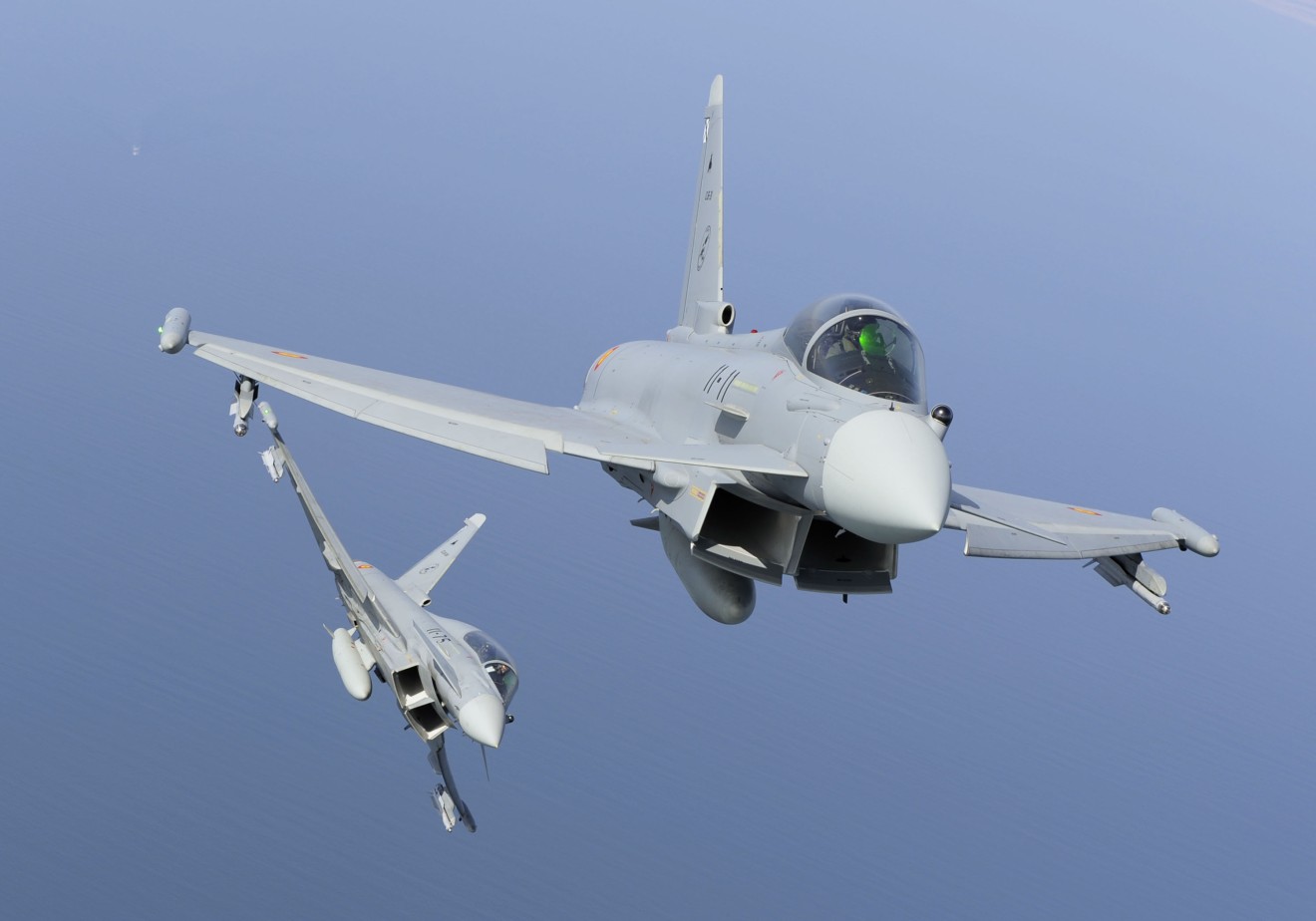SPANISH REVOLUTION
There are numerous examples of businesses that have grown and developed thanks to being part of Europe’s largest military procurement programme but nowhere has the Eurofighter effect been felt more keenly than in Spain, where the economic impact has been enormous. In fact, you could argue that an entire industry has been nurtured.
“You can clearly say there is a ‘Before Eurofighter’ and an ‘After Eurofighter’ for the Spanish aerospace industry,” says Ivan Gonzalez Exposito, Head of Combat Aircraft Campaigns for Airbus Defence and Space.

‘Before’ the industry was very local-oriented looking at military transport for a single customer, the Spanish MOD.
On the combat side the CASA (Construcciones Aeronáuticas) work — which partially thanks to Eurofighter went on to become first EADS, then Airbus Spain — was limited to maintenance for the Spanish Air Force’s American or French fighters, but this tended to be of low value and on the less sophisticated systems.
Ivan points out that the Spanish government’s decision in the 1980s to become one of four founding Eurofighter core partner nations came along at an important stage in Spain’s Aerospace history. Back then it was a young democracy undergoing something of a cultural, social and economic revolution and looking to present a new face to the world.
In 1982 it had joined the EEC (European Economic Community) and NATO. Spain put 13 per cent of the funding into the programme and in work share negotiations insisted Spanish industry was involved in all the important systems in the aircraft. This was a crucial and challenging period for all four countries and their industry partners.
The selection process and negotiations for the original group of close on 90 suppliers was completed in 18 months.
Spanish industry became involved in every aspect of the platform, from composite manufacturing through to involvement in different systems like flight control, weapon integration, fuel, environmental control system, landing gear, communications, the RADAR and DASS (Defensive Aid Sub-System). This meant public funds helped to research and develop new technologies and know-how which ,has encouraged indigenous businesses to flourish and develop sovereign capabilities.

Says Ivan: “The Eurofighter programme provided a great opportunity for Spanish industry and academia to grow together.
"It allowed the companies to compete against and learn from other nations about how to work in different systems and how to get access to new technologies. Very quickly they were able to associate with companies from Italy, the UK and Germany, who had the previous experience with the Tornado programme.
“It was difficult because being involved in the work and the development packages meant the industry teams had to learn quickly in terms of technology requirements and quality standards. But what the Spanish industry lacked in knowledge it made up for in terms of ambition. People were very hungry to learn and grow internationally and there was a spirit of ingenuity and entrepreneurship. It was a great opportunity but also a great learning curve for them.
“Many of the companies which work on Eurofighter in Spain nowadays didn’t exist. Take SENER – now ITP (which is now the 9th largest aero-engine business in the world), for example. Suddenly thanks to the Eurofighter programme we founded a company which was able to invest in the industrialisation processes.
“There are others, like leading avionics supplier Indra, M-Torres, which has a global reputation for jigs and tools for carbon fibre aero-structures, Tecnobit and CESA – spinoff of CASA, that all took off thanks to being part of Eurofighter.
“Today Spain has a network, and one that’s not concentrated in Madrid or in a single company. There are small, medium and large suppliers and they are competing, and winning, on a world stage. Many can rightly say they are global concerns in their own right.”
As well as developing and sustaining a skills base, working on the programme has conferred real credibility for these growing businesses, allowing them to win work on other projects worldwide, including the A400M, Tiger Helicopter, Boeing and Airbus Civil airliners, Space & Satellite business.
The Economic Impact of Eurofighter Contract in Spain
20,000 jobs created and sustained (all phases of development, production, support; and counting aerospace direct, supply chain related and indirect/other industrial or economic sectors).
+40% of Gross Contract Value (contract VAT, other taxes, social security contribution) returned to public funds of Spanish Government.
Says Ivan: “The reputation and credibility of working on the Eurofighter programme has definitely helped them get a foothold on other projects. If you are able to say that you are working on the biggest defence programme in Europe then a number of doors open up for you. It underlines your credibility and is like putting a quality stamp on your business card.
“And thanks to our involvement in big defence programmes like this, Spanish firms are not only creating jobs and acquiring technologies but developing spin-offs for other industrial sectors. That’s why it’s still important to keep on working with the Spanish government in the long-term evolution of the Eurofighter in the future.”

Pic: Supplier Conference in Munich
Another plus has been the collaboration between industry, the Universities (Madrid, Sevilla, Barcelona, Bilbao) and with Spanish Government institutions CLAEX (Logistic Centre of Armament and Experimentation, within Spanish Air Force) and INTA (National Institute for Aerospace Technology).
As Eurofighter and its partner companies, BAE Systems, Leonardo and Airbus, pursue future opportunities in Europe — where there are potentially in excess of 300 new combat aircraft orders – the story of Spain’s involvement is a powerful one at a time when other nations are weighing up the positives of becoming part of the family.
Adds Ivan: “Maybe they wouldn’t have to go through the same learning curve that the Spanish industry had to because we are now talking to countries like Belgium, Finland, Poland and Switzerland, that already have a well developed aerospace industry. But through Eurofighter they would be able to participate in the development of new capabilities and get access to all the technologies.
“This is something that our competitors can’t easily offer. They can also have a voice through their own governments on the future evolution of the Eurofighter. It’s a unique offer that benefits the governments, the military and the industries.”
• first published in 2018
